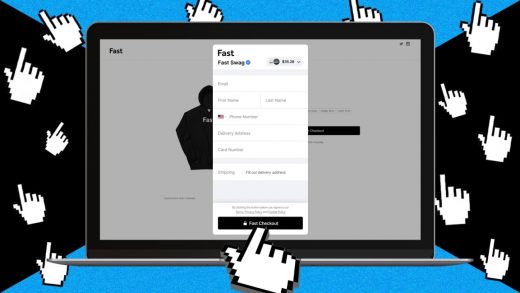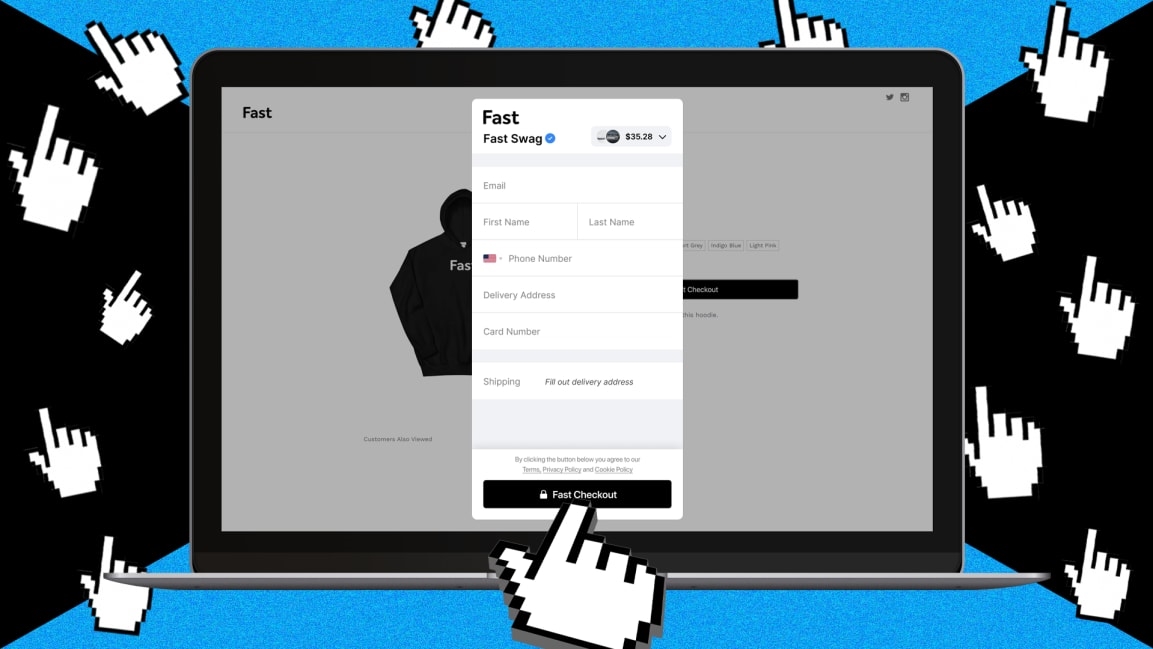This Stripe-backed startup wants to bring one-click checkout to the rest of the web
Like many people during the pandemic, I have been trying to order less from Amazon, instead getting my books from independent bookstores and ordering supplies from smaller sites. The main downside? Filling out my address, phone number, and credit card details every time I buy from a new site.
Universal checkout company Fast is seeking to solve that problem. The company wants to help you log in and make online purchases quicker with its first product, Fast Checkout, which launched in September. Create an account with Fast, and shopping elsewhere on the web becomes as easy as shopping on Amazon, which pioneered the idea of one-click checkout. With Fast, you log in to a single account to make payments with one click on all of its partner websites. In essence, the company wants to be your shopping account for the web so you never have to fill out all that information again.
Fast was founded in March 2019 by entrepreneur and CEO Domm Holland and COO Allison Barr Allen, who previously oversaw all money-related products at Uber including Instant Pay. In March 2020, the company raised a $20 million series A led by fintech juggernaut Stripe.
While Stripe looks at the vendor side of transactions, creating a platform for many different shops to process payments, Fast hopes to do the same on the consumer side: create a system where people can register once, and then just log in to pay for things on multiple sites. The first time you see a Fast checkout button on a website, you can click on it and enter your details and credit card information. Then, the company is able to track you across sites and devices using cookies, IP addresses, and your email, which means that on any site with a Fast Checkout button, you won’t have to enter your details again.
“There’s a massive problem, which we see heavily in e-commerce, where we just continually have to fill in forms over and type in the same information, which means that [stores have] siloed versions of our data,” Holland says.
But Fast isn’t hogging this data. It still provides stores with customer profiles while promising to reduce friction in the checkout process, which could ultimately increase sales. However, unlike other e-commerce platforms, it is committed to not funneling the data it collects back to advertisers (though selling data on consumer spending habits is a hugely lucrative industry). While the company sees potential in using that data for personalized shopping in the future, Fast primarily makes money by getting a portion of the service charge that is shared with Stripe.
The more places that sign on to use Fast, the more useful the service will become for users. Right now, the service has not been widely adopted, though the company has started rolling out to the 60,000 merchants on Stripe’s platform.
The company will also record every purchase you make in your “Fast Feed,” allowing you to track all of your purchases in one place. The concept is similar to Shopify’s Shop app, but populated with direct data rather than information scraped from emails.
Down the line, the company hopes to create a universal subscription manager for everything from Netflix to monthly matcha deliveries, letting users push a button to enter all of their information when they sign up and keep track of their subscriptions in one place.
Through Fast, Holland hopes to build his own ecosystem outside of the online shopping supremacy of Google and Amazon. “We have absolutely no limiting context. We really just want every consumer to be able to use all of these products,” he says.
(30)



